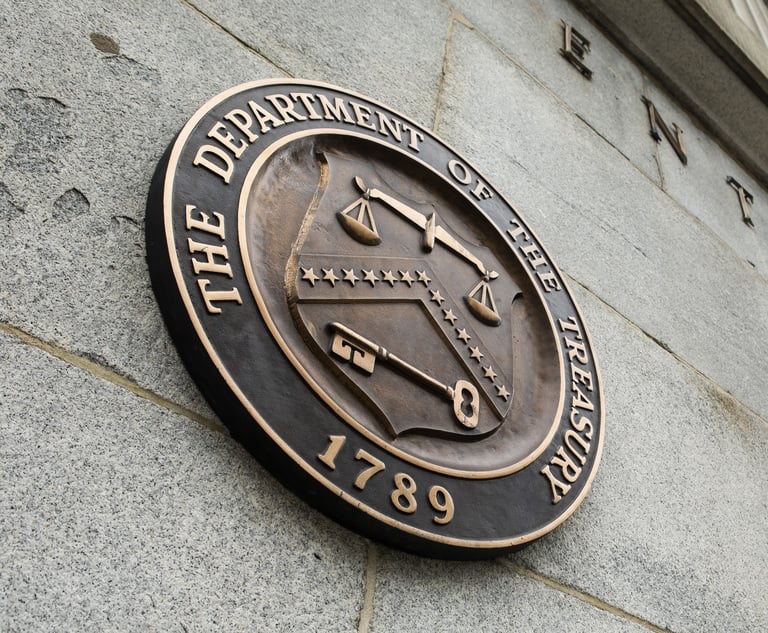Gov.'s Coronavirus Closures Spark Litigation Over Constitutionality of Executive Orders
There is growing concern that some of those orders during the coronavirus pandemic may have exceeded their authority to execute the law and, in effect, may have usurped the power of the legislature and caused businesses to fail and workers to lose their jobs without sufficient legal justification.
June 18, 2020 at 12:25 PM
7 minute read
 Robin Bresky, The Law Offices of Robin Bresky, Boca raton.
Robin Bresky, The Law Offices of Robin Bresky, Boca raton.It has been said that unprecedented times require unprecedented measures. While many were in favor of various state governors' stay-at-home orders, there is growing concern that some of those orders during the coronavirus pandemic may have exceeded their authority to execute the law and, in effect, may have usurped the power of the legislature and caused businesses to fail and workers to lose their jobs without sufficient legal justification.
The U.S. Constitution and the Florida Constitution rest upon the principle of separation of powers, with checks and balances among the co-equal legislative, executive, and judicial branches of government. The framers of our Constitution gave the President the primary duty to "take care that the laws [of Congress] be faithfully executed." Similarly, the Florida Constitution requires the governor to "execute the laws of the state" and "take care that the laws [of the Legislature] be faithfully executed."
The Florida governor's coronavirus-related executive orders have cited "the authority vested in me by Article IV, Section (1)(a) of the Florida Constitution and Chapter 252, Florida Statutes, and all other applicable laws." However, Section (1)(a) of Article IV does not mention emergency powers or executive orders. The phrase "executive order" does not appear anywhere within the Florida Constitution except in the unrelated context of suspensions of public officials and provision of clemency.
The Florida Statutes provide for executive orders to "meet[ ] the dangers presented to this state and its people by emergencies," Section 252.36(1)(a) and "[s]uch executive orders, proclamations, and rules shall have the force and effect of law." Section 252.36(1)(a) & (b), Fla. Stat. The legislative intent was to reduce the state's vulnerability to a "wide range of emergencies, including natural, technological, and manmade disasters, all of which threaten the life, health, and safety of its people," Section 252.311(1), Fla. Stat., and "to protect the public peace, health, and safety." Section 252.32(1), Fla. Stat.
However, the Legislature mandated that the governor's emergency powers must be carried out "through proper process of law." Section 252.36(1)(a), Fla. Stat. And it is unclear how far the authority provided by Chapter 252 reaches in situations where an executive order may unnecessarily interfere with thousands or millions of people's livelihoods.
As citizens file cases in the courts to challenge the Governor's stay-at-home orders, it seems that the courts may scrutinize whether the executive orders followed the "proper process of law" as mentioned in that statute, whether the orders complied with the legislative intent of the State Emergency Management Act, and whether the orders infringed upon any constitutional rights.
At least two cases regarding coronavirus-related business closures have already been filed against Gov. DeSantis, challenging his authority to order certain "nonessential" businesses to close (or to remain closed while other businesses or other parts of the state begin to reopen pursuant to the Governor's executive order of April 29, 2020). Both cases were filed by individuals who effectively lost their jobs in the restaurant or bar industries in Palm Beach County.
One of the cases was filed on May 5, 2020, as an original proceeding in the Florida Supreme Court. The petitioner is a former employee of Cucina Cabana, a restaurant in North Palm Beach, Florida. He filed a petition for Writ of Quo Warranto in a case styled Abramson v. Ron DeSantis, Governor (case number SC20-646). "Quo warranto," which literally means "what warrant" or "by what authority," is an original proceeding used to contest an individual's claim to a public office or to challenge an official's authority to carry out certain actions.
William Abramson's petition argued that the governor lacks authority to issue executive orders related to the coronavirus pandemic under the State Emergency Management Act and alleges that the executive orders violate the U.S. Constitution and the Florida Constitution. The petition asserted that the Florida Constitution does not afford the governor the authority to issue health-related executive orders. It also argued that the State Emergency Management Act was not enacted to enable closing the state, but rather to assist in opening it; and that it does not encompass this public health emergency but rather was primarily intended to assist with handling natural disasters such as hurricanes.
The governor filed a response on May 18, arguing that the petition should be dismissed for lack of jurisdiction because the functions of government are not adversely affected and that the petitioner lacks standing because he has not alleged a special injury. The governor alternatively argued that the petition should be denied on the merits because the governor had authority to issue the Phase 1 orders under the Florida Constitution and statutes. The petitioner filed a reply on May 20, arguing that a virus is not a natural event or disaster contemplated by Chapter 252 and contending that the governor "is making arbitrary decisions without any regard to the consequences." Abramson has requested oral argument, and it could be several months before the court issues an opinion.
Some similar issues were raised recently in a federal case, Henry v. Ronald DeSantis, case number 9:20-cv-80729-AHS, that was filed on May 1, 2020 in the Southern District of Florida in West Palm Beach. The petitioner effectively lost her job at a bar that was closed during the coronavirus pandemic. She sought emergency injunctive relief in the form of vacating the governor's executive order of April 29 (titled "Phase 1: Safe. Smart. Step-by-Step. Plan for Florida's Recovery") and the prior orders requiring closures of nonessential businesses.
Henry's petition argued that the April 29 executive order arbitrarily allowed some businesses to open and requires others to remain closed, and that it arbitrarily maintained more restrictions in Palm Beach, Broward, and Miami-Dade Counties than other counties, "which would disparately affect some businesses and not others of the same business type [in other counties]." She also contended that the governor "has no legal authority to order petitioner's place of work closed indefinitely" and asserted that "petitioner's right of life, liberty, happiness, industry, equality, and due process have been violated."
The federal court directed the governor to respond to the complaint. He filed a motion to dismiss and an opposition to emergency injunctive relief. Within 72 hours, on May 14, U.S. District Judge Raag Singhal granted the governor's motion and dismissed the case with prejudice. The court ruled that the governor's actions were "reasonable and measured, based on data and science, and rationally related to a legitimate end … As painful as this moment is for [Henry] and millions of other Floridians, her constitutional rights are not implicated." The order concluded that, "so long as the people's elected leaders are working within the confines of the people's constitutional rights, courts are not here to second-guess or micromanage their already unenviable jobs guiding us through profoundly unprecedented challenges."
It will be interesting to see if Henry seeks to appeal that order to the U.S. Court of Appeals for the Eleventh Circuit. I will also follow Abramson's pending Florida Supreme Court case with interest.
While many feel that the governor's orders were justified by the public health emergency of the COVID-19 pandemic, Henry and Abramson have raised some important issues. The need for an independent judiciary is magnified in times of crisis. The courts need to apply the necessary checks and balances and ensure that the executive branch acts within the scope of its authority.
Robin Bresky of The Law Offices of Robin Bresky in Boca Raton, is an appellate attorney who handles appeals and litigation support in federal and state courts in Florida.
This content has been archived. It is available through our partners, LexisNexis® and Bloomberg Law.
To view this content, please continue to their sites.
Not a Lexis Subscriber?
Subscribe Now
Not a Bloomberg Law Subscriber?
Subscribe Now
NOT FOR REPRINT
© 2025 ALM Global, LLC, All Rights Reserved. Request academic re-use from www.copyright.com. All other uses, submit a request to [email protected]. For more information visit Asset & Logo Licensing.
You Might Like
View All

Don’t Forget the Owner’s Manual: A Guide to Proving Liability Through Manufacturers’ Warnings and Instructions
5 minute read

Trending Stories
- 15th Circuit Considers Challenge to Louisiana's Ten Commandments Law
- 2Crocs Accused of Padding Revenue With Channel-Stuffing HEYDUDE Shoes
- 3E-discovery Practitioners Are Racing to Adapt to Social Media’s Evolving Landscape
- 4The Law Firm Disrupted: For Office Policies, Big Law Has Its Ear to the Market, Not to Trump
- 5FTC Finalizes Child Online Privacy Rule Updates, But Ferguson Eyes Further Changes
Who Got The Work
J. Brugh Lower of Gibbons has entered an appearance for industrial equipment supplier Devco Corporation in a pending trademark infringement lawsuit. The suit, accusing the defendant of selling knock-off Graco products, was filed Dec. 18 in New Jersey District Court by Rivkin Radler on behalf of Graco Inc. and Graco Minnesota. The case, assigned to U.S. District Judge Zahid N. Quraishi, is 3:24-cv-11294, Graco Inc. et al v. Devco Corporation.
Who Got The Work
Rebecca Maller-Stein and Kent A. Yalowitz of Arnold & Porter Kaye Scholer have entered their appearances for Hanaco Venture Capital and its executives, Lior Prosor and David Frankel, in a pending securities lawsuit. The action, filed on Dec. 24 in New York Southern District Court by Zell, Aron & Co. on behalf of Goldeneye Advisors, accuses the defendants of negligently and fraudulently managing the plaintiff's $1 million investment. The case, assigned to U.S. District Judge Vernon S. Broderick, is 1:24-cv-09918, Goldeneye Advisors, LLC v. Hanaco Venture Capital, Ltd. et al.
Who Got The Work
Attorneys from A&O Shearman has stepped in as defense counsel for Toronto-Dominion Bank and other defendants in a pending securities class action. The suit, filed Dec. 11 in New York Southern District Court by Bleichmar Fonti & Auld, accuses the defendants of concealing the bank's 'pervasive' deficiencies in regards to its compliance with the Bank Secrecy Act and the quality of its anti-money laundering controls. The case, assigned to U.S. District Judge Arun Subramanian, is 1:24-cv-09445, Gonzalez v. The Toronto-Dominion Bank et al.
Who Got The Work
Crown Castle International, a Pennsylvania company providing shared communications infrastructure, has turned to Luke D. Wolf of Gordon Rees Scully Mansukhani to fend off a pending breach-of-contract lawsuit. The court action, filed Nov. 25 in Michigan Eastern District Court by Hooper Hathaway PC on behalf of The Town Residences LLC, accuses Crown Castle of failing to transfer approximately $30,000 in utility payments from T-Mobile in breach of a roof-top lease and assignment agreement. The case, assigned to U.S. District Judge Susan K. Declercq, is 2:24-cv-13131, The Town Residences LLC v. T-Mobile US, Inc. et al.
Who Got The Work
Wilfred P. Coronato and Daniel M. Schwartz of McCarter & English have stepped in as defense counsel to Electrolux Home Products Inc. in a pending product liability lawsuit. The court action, filed Nov. 26 in New York Eastern District Court by Poulos Lopiccolo PC and Nagel Rice LLP on behalf of David Stern, alleges that the defendant's refrigerators’ drawers and shelving repeatedly break and fall apart within months after purchase. The case, assigned to U.S. District Judge Joan M. Azrack, is 2:24-cv-08204, Stern v. Electrolux Home Products, Inc.
Featured Firms
Law Offices of Gary Martin Hays & Associates, P.C.
(470) 294-1674
Law Offices of Mark E. Salomone
(857) 444-6468
Smith & Hassler
(713) 739-1250






